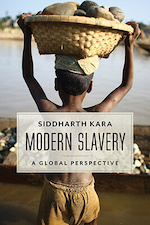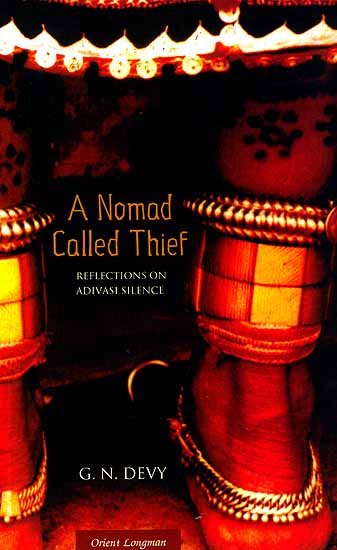MODERN SLAVERY IN INDIA >>
Estimated number living in modern slavery: 11,050,000 (8.0 per thousand)
“Modern slavery takes many forms and is known by many names. Essentially, it refers to situations of exploitation that a person cannot refuse or leave because of threats, violence, coercion, or deception. […] Modern slavery is inextricably linked with global challenges such as climate degradation, gender inequality, COVID-19, and conflict. […] The adverse impacts of climate change magnify other drivers of displacement such as loss of livelihoods, poverty, food insecurity, and a lack of access to water and other resources, pushing people to migrate and exposing these vulnerable populations to modern slavery. […] An estimated 5.4 million children worldwide live in orphanages and other institutions.” – https://www.walkfree.org/global-slavery-index/ (Date accessed: 11 April 2024)
WOMEN AND GIRLS
Women and girls are disproportionately affected by modern slavery. As they transition through childhood, adolescence and adult life, the impacts of discrimination multiply and gender inequality grows.

Video lessons on Human trafficking >>
Tip: check the latest figures and reports published by the Walk Free Foundation >>
Walk Free uses cutting-edge prevalence estimation techniques including nationally-representative surveys in partnership with Gallup, risk-model extrapolation and multiple systems estimation to measure modern slavery globally. We also assess government responses to this issue and vulnerability structures that impact populations around the world >>
Hundreds of millions of people today are highly impoverished and disadvantaged by virtue of ethnic or gender identity. These and other forces render them highly vulnerable to false offers by human traffickers. […] In fact, we still do not know to what extent global supply chains are maintained by slavery and child labor. Because of these and other factors, slavery today is more profitable than ever before, and also more woven into the global economy than ever before.
Source: Siddharth Kara interviewed by Katie Gibsoni: Quick, cheap and vulnerable: Siddharth Kara on the persistence of modern slavery, 12 October 2017, Harvard Kennedy School (Faculty and Research)
Date accessed: 6 May 2023
URL: https://www.hks.harvard.edu/research-insights/policy-topics/human-rights/siddharth-kara-persistence-modern-slavery
Siddharth Kara, Director of the Program on Human Trafficking and Modern Slavery at Harvard Kennedy School and author of three books: “Bonded Labor: Tackling the System of Slavery in South Asia”; “Modern Slavery,” and “Sex Trafficking: Inside the Business of Modern Slavery” | Read the full interview titled “Quick, cheap and vulnerable: Siddharth Kara on the persistence of modern slavery” >>
“The transformation of the global slave trade from a high-cost, slow-recruitment business to a low-cost, rapid-recruitment one is driving criminal interest in trafficking and slavery, which is why it is permeating every corner of the global economy. […] For the past quarter of a century, the global economy has brought many benefits to the world through greater flows in goods, capital and people. But the poorest of the poor have increasingly become an exploited labour class toiling in murky factories, mines and fields to feed our insatiable appetites. In this way, we are all shareholders in a system of slavery found in numerous global supply chains. We must ask ourselves how much longer we will look the other way while millions toil in slave-like conditions to provide us with the goods and services we consume.” – Siddharth Kara | Read more and watch a video interview with Siddharth Kara published by The Guardian >>
What is trafficking in persons? | Read the full article here >>
Broadly, trafficking is the exploitation of people, most often for sexual exploitation or forced labour. The different elements are captured within the UN ‘Protocol to Prevent, Suppress and Punish Trafficking in Persons, especially Women and Children’,1 adopted in 2000 and implemented by the United Nations Office on Drugs and Crime (UNODC).
The Protocol defines trafficking as: “[…] the recruitment, transportation, transfer, harbouring or receipt of persons, by means of threat or use of force or other forms of coercion, of abduction, of fraud, of deception, of the abuse of power or of a position of vulnerability or of the giving or receiving of payments or benefits to achieve the consent of a person having control over another person, for the purpose of exploitation. […]” (Article 3).
While some may associate trafficking with movement – as suggested by the terms ‘transportation’ and ‘harbouring’ in the above definition – it is not necessary for a person to have been moved to another location for trafficking to have taken place. According to the 2018 UNODC ‘Report on Trafficking in Persons’,2 the highest numbers of trafficking victims are detected in the countries in which they are citizens, a departure from the reported cases in previous editions. In order to better understand the problem, some analyses have attempted to classify states into source, transit and destination countries, which may be useful to sketch out the routes for transnational forms of human trafficking, but may present a misleading picture when the highest numbers of trafficking victims are local. […]
There have been initiatives to help generate other data sources around trafficking in persons. Some organisations have circulated household surveys to gain insights into cases that may not have been reported through other channels. For instance, the Walk Free Foundation has used figures from household surveys to produce their ‘Global Slavery Index’, which estimated that on “any given day in 2016, an estimated 24.9 million men, women, and children were living in modern slavery in Asia and the Pacific.”
Source: “An uncertainty of terms. Definitional and methodological concerns in human trafficking” by Anna Tsalapatanis (Centre for Socio-Legal Studies, University of Oxford) – IIAS The Newsletter 87 Autumn 2020
URL: https://www.iias.asia/the-newsletter/article/uncertainty-terms-definitional-and-methodological-concerns-human-trafficking
Date visited: 30 October 2020
[Bold typeface added above for emphasis]

Human trafficking is a crime. To report in India, call Shakti Vahini
+91-11-42244224, +91-9582909025 or the national helpline Childline on 1098.
National Programme for Child Labour Free India | PDF-Repository (70 KB) >>
“As per a study on human trafficking, the state of Jharkhand has emerged as India’s trafficking hub with thousands of tribal women and girls being trafficked out of the state each year to Delhi, Punjab, Haryana and beyond [while] human traffickers are also involved in many cases of missing children.” – The Wire | Shakti Vahini | Tourism locations | Adivasi tribal bondage slavery trafficking (Safe search) >>
“Childline 1098 is a 24×7 emergency, free phone outreach for children in distress. It is one of the world’s biggest emergency helpline services dedicated to children, and is considered to be among the country’s largest emergency response systems” – The Hindu, 17 April 2022 >>

Reflections on Adivasi Silence and Voice by Ganesh [G.N.] Devy | Publications >>
A call for harnessing the potential of Denotified Tribes, Nomadic and Semi-Nomadic Tribes for national development: “India’s labour force must be liberated from an abhorrent colonial doctrine (‘criminality by birth’)” – Report and Recommendations of the Technical Advisory Group | “Adivasi”, “Tribals” and “Denotified tribes” (classifications in different states) >>
Learn more
Bondage | Bonded labour | Human trafficking | Slavery | Zamindari
Childhood | Childrens rights: UNICEF India | Safe search
Colonial policies | Freedom Struggle | Independence
Denotified Tribe vs. “criminal tribe“
Figures, census and other statistics
Health and nutrition | Recommendations by the Expert Committee
“In fact, we still do not know to what extent global supply chains are maintained by slavery and child labor. Because of these and other factors, slavery today is more profitable than ever before, and also more woven into the global economy than ever before.” – Siddharth Kara on the persistence of modern slavery| Learn more >>
Human trafficking is a crime. To report in India, call
– Shakti Vahini +91-11-42244224, +91-9582909025 or
– Childline 1098 (national helpline)
Human Rights Commission (posts) | www.nhrc.nic.in (Government of India) >>